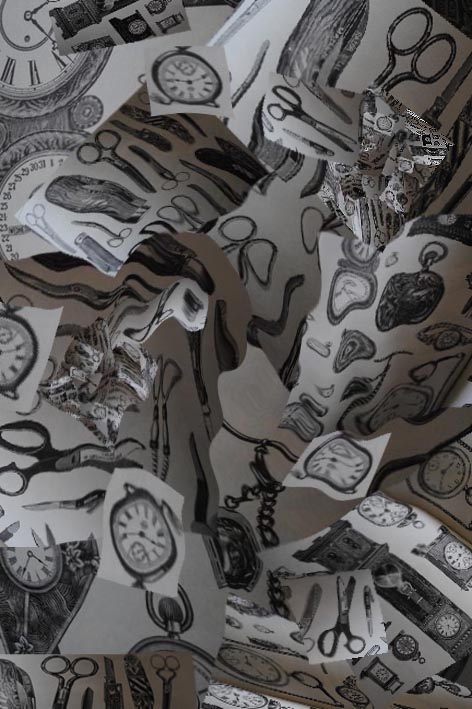Psychological investigators asked individuals in a test group to make a choice: would they rather spend twenty minutes in an isolation room using no electronic devices, or would they opt to break the tedium by giving themselves short but painful electrical shocks. Many chose to press the shock button. The thought of being quietly alone with their thoughts terrified them.
Addiction to media stimulation isn’t new. When I was a kid, my mother turned the television or radio on shortly after breakfast. They remained on for the rest of the day and into the night. (We listened to Walter Cronkite reporting Vietnam War body counts during supper.) She fell asleep many nights on the living room sofa accompanied by late night talk show hosts. At the height of her enthrallment, she would simultaneously watch a baseball game on TV, listen to the same game on a transistor radio, and would also have another radio playing an AM station. If you rotated focus from one to the other, you could hear TV commentators murmuring, the radio sportscasters making similar remarks about a play at second base, and the AM radio crooning its slogan (“It’s Beeeyoootiful in Dayton.”) And if the game lacked drama, Mom would engage in a conversation over the top of the noise.
I don’t remember many moments of calm and silence inside the house. I sometimes took refuge by climbing an apple tree in the back yard. I’d watch birds flying by as the sun set behind a stand of trees.
When I first started meditating, stillness troubled me. My mind churned out random thoughts, and a headache would pop up behind my forehead. I gradually grew accustomed to silence by meditating with my wife. Her steadying presence drew me deeper.
We joined the Quakers shortly after our wedding. Quakers practice a form of silent worship in which a group “centers on the Inner Light” and waits for guidance. Speakers deliver short messages when inspiration strikes. But in a “gathered meeting”, a whole hour passes by undisturbed. A feeling of kinship arises amongst the congregants, and sometimes a loving presence descends upon them.
Buddhists teach that a deeper sense of reality awaits anyone who loses their identification with mental noise. We delude ourselves when we become attached to the voices in our heads, and when we base our self-images on the ruckus. We mistakenly believe that surface waves are the whole ocean.
When I am stressed, I want noise and distraction to shield me from my situation. I escape mental pain by watching a bad movie or a long succession of YouTube videos. I can feel an addiction to noise gaining strength.
I’m slowly learning to turn toward the pain and anxiety, to meet them. I don’t want to end up wandering in an echo chamber of pointless noise.

 Cover image for “A Narrow Slice of Time”
Cover image for “A Narrow Slice of Time”